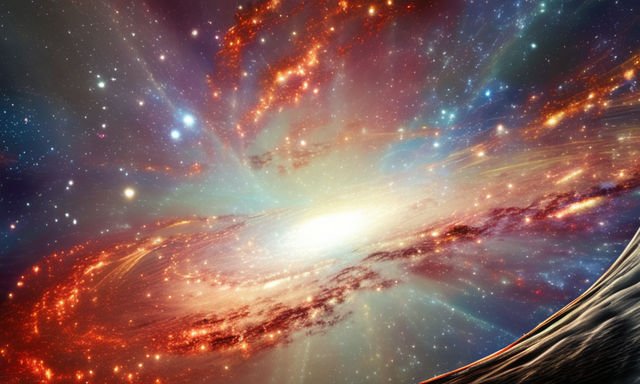The first galaxies in the universe
The first galaxies in the universe

They have captured the oldest galaxy ever recorded, it could be called ancient because it was created just a few hundred million years after the Big Bang, and all thanks to the James Webb Space Telescope.

Souce
And this means that before the light that we are seeing from this ancestral galaxy, there must have been several generations of massive stars that were born, fused elements and exploded again; It is true that massive stars live much less time than stars like the sun, if a star like ours has an existence of about 10,000 million years, a massive star can live about 10 million years or a little more, but still It is disconcerting to think that several generations of massive stars existed so close to the origin of the universe.
Thank you for visiting my blog. If you like posts about #science, #planet, #politics, #rights #crypto, #traveling and discovering secrets and beauties of the #universe, feel free to Follow me as these are the topics I write about the most. Have a wonderful day and stay on this great platform :) :)
0
0
0.000
Congratulations @jorgebgt! You have completed the following achievement on the Hive blockchain And have been rewarded with New badge(s)
You can view your badges on your board and compare yourself to others in the Ranking
If you no longer want to receive notifications, reply to this comment with the word
STOPCheck out our last posts:
Thanks for your contribution to the STEMsocial community. Feel free to join us on discord to get to know the rest of us!
Please consider delegating to the @stemsocial account (85% of the curation rewards are returned).
You may also include @stemsocial as a beneficiary of the rewards of this post to get a stronger support.